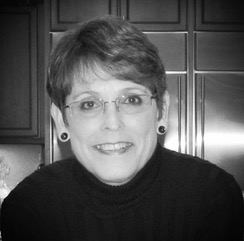“Pat in 1988 before our world came undone.” Author Dede Ranahan’s first book
(3-26-19) I’ll be speaking April 2nd at the National Alliance on Mental Illness Dane County 2019 Awards Banquet and Gala in Madison, Wisconsin. Please support NAMI by attending if you live in the Madison area.
The 2019 book season is upon us. Here’s a few that have caught my eye. If you have one that you’d like to recommend, please do so on my Facebook page.
Long considered the most comprehensive and authoritative book written about schizophrenia, an updated Surviving Schizophrenia is being released today. It was groundbreaking when it was first published in the early 1980s. Here’s how my former colleague at the Washington Post, Peter Carlson, described the book’s impact in a 2001 article that documents how this important work helped NAMI become a national organization. If you have schizophrenia, know someone who does, or want to educate yourself about this serious mental illness, this is a must read.
When Laurie Flynn walked into the office of the National Alliance for the Mentally Ill for her first day as executive director in 1984, she found a pile of mailbags, each of them stuffed with letters. It was all because of E. Fuller Torrey.
Torrey had just published “Surviving Schizophrenia,” a guide for patients and their families. When he appeared on Phil Donahue’s TV show to promote it, he urged people seeking help to contact the alliance, which was then a fledgling organization with fewer than 50,000 members, most of them the parents of mental patients. The result was this avalanche of mail.
“Nobody had ever said the word schizophrenia on popular television, and people came out of the woodwork seeking help,” Flynn recalls. “For many years, mothers were told they were the cause of the problem, and here comes Fuller Torrey saying, ‘Wait a minute, this isn’t the family’s fault. These are brain diseases.’ Here was a psychiatrist saying, ‘I know what you’re going through because my sister has the problem.’ It’s hard to overemphasize what a hero he was back in the early days.”
Torrey donated the royalties of “Surviving Schizophrenia” to the alliance and he hit the hustings to organize, helping to build the group into a powerful lobbying organization with more than 220,000 members.
“Weekend after weekend,” Flynn says, “he went out to states where members were organizing chapters and he rallied the troops. Nobody did it better.”
Not everyone lands a huge publisher, which is why I want to mention several books about mental illness that don’t have a large promotional budget and often are not by professional writers. They’re simply poignant tales written from the heart.
It’s difficult to turn a diary into a book. A writer’s tools, such as pacing, foreshadowing and character development, don’t generally fit in a non-fiction diary form. It’s an especially daunting task for a first time author. Sooner Than Tomorrow: A Mother’s Diary About Mental Illness, Family and Everyday Life, by Dede Ranahan pulls off that delicate dance. Interwoven with her diary entries are Facebook posts written by her son, Patrick. When this NAMI advocate first started writing her diary on June 15, 2013, she did not know that she would be chronicling Patrick’s last year. He died on July 23, 2014 in a psych ward where she thought he would be safe.
Because Ranahan wanted to tell her story in context, she includes other events in her diary beside her son’s mental illness. That was a bold move. Some may find that distracting at first, but Ranahan wanted to blend her son’s struggles with the everyday that all of us live. It ultimately gives readers a much fuller picture. You can read more on her blog/website: Sooner Than Tomorrow.
Here’s an excerpt:
How do you react when your 25-year-old son, during what is later seen as his first acute bipolar episode, kidnaps his teenage sister, drives her to a hospital, and convinces the emergency room staff to admit her because “she’s sick and my parents aren’t taking care of her”?
How do you compute when you arrive at the hospital to rescue your daughter—who has a cold—and you find her hysterical and sitting in a hospital bed? You ask your son, who is staring straight ahead with empty eyes, “Why did you bring your sister here?”
With logic that reflects his internal confusion, he answers,
“Because I knew I needed help…
How do you advocate when the world sees a bum, and you see the little boy you carried in your womb, nursed at your breast, laughed and played with, and knew in your heart was the world’s greatest child? And you know somewhere, trapped inside his brain, the world’s greatest child is lost and trying to be found.
–Sooner than Tomorrow by Dede Ranahan.
Another blogger turned first time author is Janet Coburn who uses her blog, Bipolar Me, to shine a spotlight on what it is like to have bipolar two disorder. Full disclosure, I’ve not yet read her book because I’m on a deadline writing a new novel, but I have read her blog and put her book on my summer reading list. I am always curious about how individuals with mental illnesses successfully manage their lives. Check out her blog to discover if her writing appeals to you.
After my last (and, I hope, last) major bipolar breakdown, my therapist pointed out that I had a unique opportunity: I could reclaim those parts of my life that had fallen away, or I could leave them behind.
I could choose. That idea was very powerful.
The Light In His Soul came out last summer and is still getting tremendous reviews. The story behind the book was first told in an award winning documentary film entitledA Sister’s Call. It is an incredibly powerful film.
In reviewing the book, Kirkus Reviews noted: “The power of this memoir lies in the way it demystifies mental health issues by examining them from a deeply personal perspective. Individuals and families facing similar experiences will certainly find solace from it… A moving, passionate, personal narrative of trauma and healing.”
Here is Amazon’s description:
Call Richmond, Jr. went missing. Twenty years later he showed up on a family member’s doorstep. He was homeless, broken, and suffering from paranoid schizophrenia. For the next fourteen years, his sister Rebecca took on the struggle to restore him as they faced the dark traumas and painful memories of their past. The Light in His Soul: Lessons from My Brother’s Schizophrenia is her intimate memoir of helping Call as she learns that his extraordinary gifts are helping heal her and her family. Both Call and Rebecca bring light to the dark shadows of their past.
Sadly, Call Richmond Jr., has passed but his story is forever memorialized.
Author Lynn Nanos is a mobile emergency psychiatric clinician in Massachusetts who has written for this blog. See: A Street Social Worker Tells What It’s Really Like.She’s also an active member of the National Shattering Silence Coalition that advocates for the seriously mentally ill population. Her book uses her personal experiences to tell a much broader story – how our underfunded and broken system is failing those with serious mental illness. Here’s how she explained why she feels so passionately about helping those too often forgotten.
I know there are success stories out there. But as an inpatient social worker, I was alarmed at the extremely high rate of readmission to our units. This is what motivated me to begin writing about what I see daily.
We, or at least, I can’t close my eyes at night knowing that we could, no, we must do better.
I think of a patient on my caseload who was paranoid delusional and was refusing to accept treatment because he did not believe that he was mentally ill. He refused to sign a release of confidentiality for me to communicate with his mother, even though they resided together. She knew he was there, so I just supportively listened to her concerns. I passed these on to the rest of the team, including his psychiatrist.
Shortly after his discharge, he used a knife to stab his mother to death.
When something such as this happens, you have choices. You can pretend these events don’t happen or turn away from them. Or you can roll up your sleeves and begin advocating to improve the lives of the seriously mentally ill population who are the sickest.
I’m in my tenth year as a mobile psychiatric emergency clinician. I’ve rolled up my sleeves.
MUST READS:
In addition, here are four extremely important books that you should read. I give them my highest personal rating. Each has impacted my thinking. Please check them out.
The post Sharing Your Stories: Books That Chronicle Mental Illnesses And Those Impacted By Them appeared first on Pete Earley.



